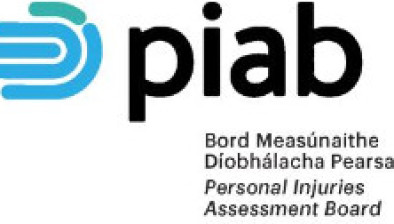High Court: HSE and St James’ Hospital application to set aside renewal of PI summons denied
The High Court has ruled against the Health Service Executive and St James’ Hospital Board in their application to set aside the renewal of a Personal Injury Summons granted by Mr Justice Anthony Barr in May 2019.

About this case:
- Citation:[2020] IEHC 172
- Judgment:
- Court:High Court
- Judge:Ms Justice Niamh Hyland
Background
Carina Brereton alleges medical negligence against the Governors of the National Maternity Hospital, the HSE, St James’s Hospital Board, Muredach Fergas and St Vincent’s University Hospital before and after her child’s birth in February 2016. She issued proceedings in March 2018 but did not serve them within the 12-month period set out in Order 8, Rule 1(4) of the Rules of the Superior Courts.
She obtained a gynaecological report in late 2018, and a further report by a consultant microbiologist was recommended. That second report was obtained in February 2019, with queries answered in March 2019.
In March 2019, letters of claim showing an intention to bring proceedings were sent to the HSE and St James’ Hospital Board. This letter was not sent to other defendants. Ms Brereton now seeks to proceed only against the HSE and St James’ Hospital. Following the order of Mr Justice Barr, the Summons was served on the HSE and St James’ Hospital in June 2019. They brought a motion to set aside the renewal in October 2019.
High Court
Ms Justice Niamh Hyland began her decision by noting that she did not accept the argument raised by Ms Brereton that she was in an unusual situation as compared with plaintiffs who were bringing proceedings for personal injury and who had to go through Personal Injuries Assessment Board in that such plaintiffs had, overall, a considerably longer period within which to serve a personal injury summons.
The judges noted that the fact that the rules applicable to medical negligence cases differ from those applicable to other types of personal injury actions could not mean that plaintiffs bringing medical negligence cases are to be treated in a “more indulgent fashion insofar as renewals of a summons is concerned”.
The HSE and St James’ Hospital Board directed the court to the amendments made to Order 8, Rule 1 of the RSC (S.I. 482 of 2018: Rules of the Superior Courts (Renewal of Summons) 2018) and in particular the necessity to show “special circumstances”. Order 8, Rule 1(4) of the RSC provides that a court, on an application under sub-rule (3), “may order a renewal of the original or concurrent summons for three months from the date of such renewal inclusive where satisfied that there are special circumstances which justify an extension, such circumstances to be stated in the order.”
The parties agreed that the special circumstances test imposes a higher bar than the test previously in place, which was the necessity to show good reason. They disagreed as to which circumstances in which the special circumstances test applies. Ms Brereton argued that following the decision of Mr Justice Charles Meenan in Murphy v ARF Management Ltd & Ors [2019] IEHC 802, the special circumstances test has been substituted for the good reason test and a court now has to be satisfied there are special circumstances to justify a renewal.
Case law
In Murphy, Mr Justice Meenan held that “the amended Order 8 has brought about a change in that under the original Order 8 the court may order a summons be renewed ‘if satisfied that reasonable efforts have been made to serve … but for other good reason’ whereas now a court has to be satisfied ‘that there are special circumstances’ which justify a renewal”.
In Ellahi, Mr Justice O’Moore acknowledged the prior decision of Murphy but noted that in Murphy, Mr Justice Meenan was not adjudicating the particular issue of the test but was considering the issue of whether there could be a number of renewals and that the requirements did not form the ratio of his judgment. He referred to the decision of Mr Justice Peter Kelly in Whelan v HSE (Unreported, High Court, 31 May 2017) that there are two orders to be sought in a renewal application; “an order extending time for the making of the application for leave to renew the summons and second, an order granting leave to renew the summons”. Mr Justice O’Moore held that the special circumstances test applied to the extension of time application but that the good reason test remained the applicable test when considering whether to renew.
The HSE and St James’ argued that, following the decision of Mr Justice Brian O’Moore in Ellahi v Governor of Midlands Prison [2019] IEHC 923, Ms Brereton must show special circumstances justifying an extension of time to seek leave to renew the Summons, but must show “good reason” to justify renewal of the Summons. Ms Brereton urged the court to depart from Ellahi and follow Murphy.
Ms Justice Hyland said that the question was “somewhat academic” in the circumstances of the case. Both parties agreed that the special circumstances test imposes a higher standard than the good reason test. The judge said that “one could certainly argue coherently that the special circumstances test applies”. She noted that the reference to “renewal” in the rule suggests that Order 8, Rule 1(4) provides for the “substantive renewal of the summons and requires the court to be satisfied of special circumstances”. An obligation to identify the special circumstances in the order arises, which she considered to be “a most unusual requirement in the architecture of the RSC. It seems improbable that the drafters of the amended Rule would require only the special circumstances mandating the extension of time to be identified in the order, but not the good reason for the renewal of the summons to be similarly identified.”
The court said that it was unlikely that the drafters of Order 8, Rule 1(4) would have imposed a two-tiered test for renewing a summons, being special circumstances in respect of the extension of time for the application and good reason for the renewal of the summons, without explicitly stating that this was the case. However, she accepted the “distinct ambiguity” in the wording of the new rule. The reference to a renewal being ordered by a court satisfied of special circumstances which justify an “extension” suggests that the special circumstances test only applies to the extension of time application for leave to renew the summons and not to the renewal of the summons. She said that the use of the word “renewal” rather than “extension” would have been far clearer.
Ms Justice Hyland held that she would follow Ellahi and apply the good reason test to the renewal of the Summons. She reached the view that there were special circumstances justifying the extension of time to bring the application for renewal. They also justified a renewal of the summons if the court applied either the special circumstance or good reason test. Ms Brereton’s solicitor intended to serve the Summons before the expiry of the 12 month period, but had inadvertently failed to do so. The solicitor wrote to the defendant before the expiry of the twelve-month period, informing them of the intended proceedings prior to the expiry date.
She noted that Ms Brereton would be at risk of being outside the Statute of Limitations if the court acceded to the application. The judge noted that she was “conscious she might have a remedy against her solicitor if that is the case” and that she was acutely conscious of the case law, such as Whelan v HSE, that a plaintiff being statute barred is not in itself a sound basis for ordering renewal of a summons. However, she said that it is clear from Chambers v Kenefick [2007] 3 IR 526 that the likely consequences for Ms Brereton of a refusal to renew make the operation of the Statute of Limitations potentially relevant.
The court therefore refused the HSE and St James’ Hospital Board’s application to set aside renewal of a summons.










